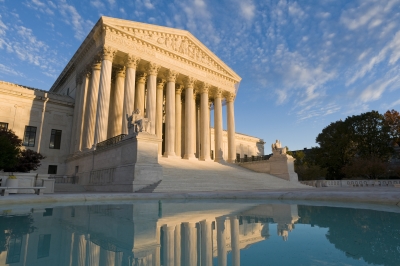 On June 21, 2022, the Supreme Court of the United States ruled that Marietta Memorial Hospital Employee Health Benefit Plan did not violate the Medicare Secondary Payor Statute (MSPS) when it limited payment for dialysis, in the case of Marietta Memorial Hospital Employee Health Benefit Plan v. DaVita Inc. DaVita provides medical treatments to patients living with end-stage renal disease (ESRD), which can be costly. Private group health plans or Medicare typically covers these patients.
On June 21, 2022, the Supreme Court of the United States ruled that Marietta Memorial Hospital Employee Health Benefit Plan did not violate the Medicare Secondary Payor Statute (MSPS) when it limited payment for dialysis, in the case of Marietta Memorial Hospital Employee Health Benefit Plan v. DaVita Inc. DaVita provides medical treatments to patients living with end-stage renal disease (ESRD), which can be costly. Private group health plans or Medicare typically covers these patients.
Individuals enrolled in Marietta Memorial Hospital's employer-sponsored group health plan went to DaVita for their treatment for ESRD. The group health plan only covered a small portion of claims filed, and DaVita sued their health plan provider, claiming that these reimbursement limits violated the MSPS.
The Court ruled that "because the Plan provides the same outpatient dialysis benefits to all plan participants, whether or not a participant is entitled to or eligible for Medicare, the Plan cannot be said to 'take into account' whether its participants are entitled to or eligible for Medicare." The dissent, however, argued that since most patients on outpatient dialysis are due to end-stage renal disease and the "MSPA's renal disease provisions were designed to prevent plans from foisting the cost of dialysis onto Medicare." Hence, the dissent now implies that Congress will have to "fix the statute this Court has broken."
Justice Kavanaugh delivered the opinion for the Court. Justice Kagan filed a dissenting opinion and was joined by Justice Sotomayor.
 Dialysis Patient Citizens (DPC) Board of Directors President Andrew Conkling stated: "DPC is deeply disappointed by today's Supreme Court decision. Congress long ago reaffirmed privately-insured patients' right to continue on their employer-sponsored plan for 30 months. This played an important role in preserving patient choice and incentivizing insurers to detect and treat chronic kidney disease. ESRD patients are among the most vulnerable Americans and face some of the largest health disparities. To allow these plans to shift patients to Medicare before the expiration of this period represents immediate and profound risks for kidney patients and their families across the nation. As the dissenting justices stated, Congress will have to fix a statute that the Court has broken. We will go back to Congress with other ESRD patient advocates to immediately clarify the rules once and for all."
Dialysis Patient Citizens (DPC) Board of Directors President Andrew Conkling stated: "DPC is deeply disappointed by today's Supreme Court decision. Congress long ago reaffirmed privately-insured patients' right to continue on their employer-sponsored plan for 30 months. This played an important role in preserving patient choice and incentivizing insurers to detect and treat chronic kidney disease. ESRD patients are among the most vulnerable Americans and face some of the largest health disparities. To allow these plans to shift patients to Medicare before the expiration of this period represents immediate and profound risks for kidney patients and their families across the nation. As the dissenting justices stated, Congress will have to fix a statute that the Court has broken. We will go back to Congress with other ESRD patient advocates to immediately clarify the rules once and for all."
Stay tuned to see if Congress reacts.





